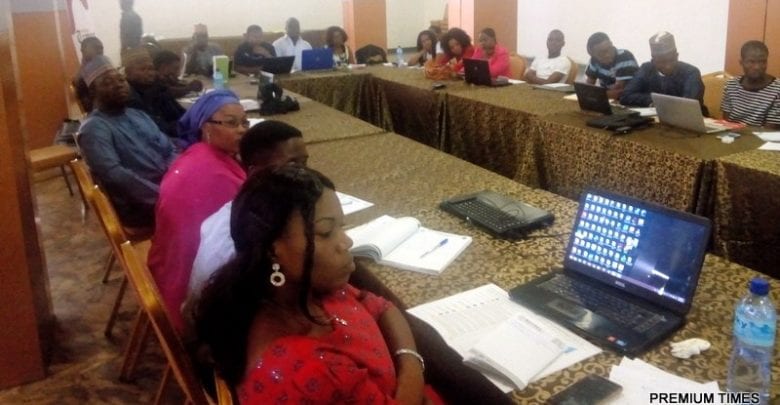
A media expert with Premium Times Centre for Investigative Journalism (PTCIJ), Adenike Aloba, has said that the practice of journalism is not at parallel with activism.
She disclosed this on Wednesday in a conversation with POLITICS NIGERIA. She said it is incorrect for practitioners to say negate linking the two.
“Those probably old experts are leaning on a principle of journalism that is an ideal that we strive for but likely cannot reach, objectivity. I don’t blame them, it was drummed into their skulls from the time they picked up a pen to write.
“Their position needs a review however, from the idealism of absolute objectivity to the reality of the relationship between objectivity and journalistic responsibility. They not only have to seriously consider this review but must also be willing to navigate the slippery slopes of living the reality. They can no longer hide under the blanket of
“I’ve been doing this for 25years, I know more than you”, that blanket is worn and threadbare and no longer covers the gaping holes that are visible in journalism especially in our clime.
“Journalism is not distinctly separate from activism, just realised differently. Truth matters, irrespective of how we feel about the issue. The burden of proof rests unchangeably heavily on journalists, checking bias over and over again has to be a mantra lived out.
“Fairness cannot be left behind, no matter how evil a monster is, so long as he’s willing, his voice has to be heard. Acticism does not have to fulfill these requisites but journalism does and this is the point of divergence. Objectivity is not white and black reporting that fails to amplify important issues in a bid to stay neutral. If in fact approached like that, journalism has failed in its role of information and more importantly education and keeping the powerful accountable.
“The very choice to focus on specific issues, politics, health, oil and gas etc. in itself is activism. In countries like ours, we have a responsibility to turn on the lights in areas of darkness. The difference is, going into these adventures in truth, we must be willing to face whatever journalistic truth we find, whether it agrees with our bias (often cloaked as a hypothesis) or not.
“Activism can often afford to have its heads in the sky, but journalism cannot. That’s why it is harder work, to stand in a position of better knowledge, of foresight but be humble enough to know that the knowledge will be tried and that foresight can be proven because current actions can change the outcomes of the future.
“Let’s take a few instances, CNNs non-stop barraging of Trump seems excessive but imagine a media house trying to neutrally report the Trump White House? Or even FOX news, Trump’s preferred outlets, imagine them towing the strict lines of objectivity. What would those reports look like in a country where there are so many mixed messages the populace is unable to tell truth from fiction. Journalism has a job to help them comprehend these flood of information otherwise we have failed.
“At home, how could we objectively cover Buhari, corruption, the National Assembly. We have a responsibility of interpretation that if we fail to do we would have failed.
“Thankfully, journalism has tools described as ethics to help it walk this slippery slope. We introduce voices into reports so that we’re not opinionising, data has also helped to better able to walk this line. Activism is not at parallels with Journalism their tools of work are just different, one more rigorous than the other.
“First we need to embrace this truth, denial will only leave us with eggs on our faces as we’ve seen play out in the Nigerian media over and over eroding, further our credibility.
We embrace this truth, then have internal processes that help us to stay true to the important ethics and rigors of our profession so that at every point in time, as much as possible we are on the right side of the slope. Often, it’s going to be on a case by case basis and that is hard work on both reporters and editors but it’s hard work that is necessary, compulsory even. (e.g Dangote’s memo, to be investigated further or not? Would we have done our jobs to say “somebody said there is a memo, Dangote said no memo” qed?)”
